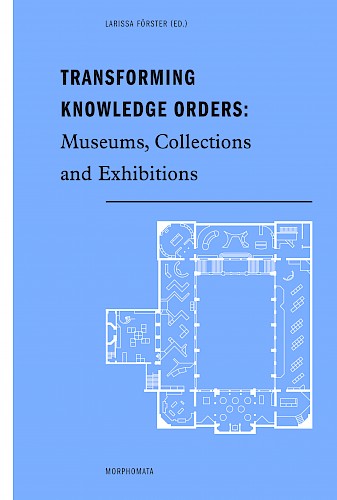
Museums, Collections and Exhibitions
Larissa Förster (Hrsg.)
Wilhelm Fink Verlag (Paderborn), 1. Aufl. 2014, 288 Seiten, 54 s/w Abb., Franz. Broschur
The history of museums is closely connected not only with the history of collecting and collections, but also with the history of science and humanities. Collections and exhibitions reflect scientific theory and scholarly practice, and in turn shape them. Hence, museums transmit and disseminate, yet also produce knowledge. On the one hand, they visualise and stabilise orders of knowledge through assembling, classifying and fixing objects in exhibitions; on the other hand, new academic paradigms and political changes lead to rearrangements of facts and artefacts in museum storerooms and displays.
This volume brings together case studies from various historical and cultural contexts that illuminate such dynamics. Its point of departure is transcultural collections and exhibitions such as cabinets of curiosities and ethnographic collections, whose attempts to inventorise and display the world testify to the desire for, but also the difficulties in establishing and maintaining orders of knowledge. A particular focus is on transformative moments in the history of museums, in particular on the early 1900s, when science and technology museums were established, and on more recent times, which have seen the refurbishment of numerous art and ethnographic museums.